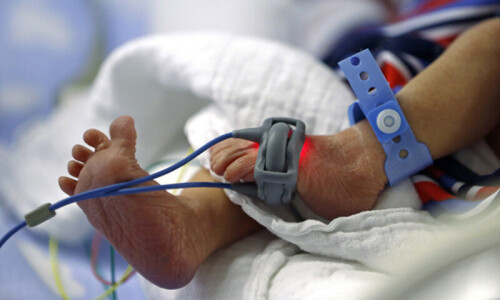HEALTH

A joint report by the United Nations Children’s Fund (UNICEF), the World Health Organisation (WHO), and the UN Population Fund (UNFPA) has revealed that Pakistan, along with Nigeria, India, and the Democratic Republic of the Congo (DRC), accounted for nearly 47% of the estimated 260,000 maternal deaths worldwide in 2023.
The report, released in observance of World Health Day on April 7, highlights that Pakistan recorded approximately 11,000 maternal deaths last year, making up 4.1% of the global total. Nigeria led the world with about 75,000 deaths (28.7%), followed by India and the DRC with 19,000 each (7.2%).
Maternal deaths are defined as those resulting from complications during pregnancy or childbirth.
Funding Cuts Threaten Progress
The report issued a stark warning that global progress in reducing maternal deaths is at risk due to severe aid cuts, particularly by major donors like the United States and the United Kingdom. These cuts, the report notes, have forced many countries to scale back essential maternal, newborn, and child health services.
“When a mother dies in pregnancy or childbirth, her baby’s life is also at risk. Too often, both are lost to causes we know how to prevent,” said UNICEF Executive Director Catherine Russell. “The world must urgently invest in midwives, nurses, and community health workers.”
COVID-19’s Lingering Impact
For the first time, the report included a global estimate of maternal deaths linked to the COVID-19 pandemic. The number of maternal deaths rose from 282,000 in 2022 to 322,000 in 2023, with approximately 40,000 more women dying in 2021 alone due to complications exacerbated by the pandemic and disruptions to healthcare services.
Persistent Inequalities
Despite a 40% reduction in global maternal mortality between 2000 and 2023, progress remains uneven. Sub-Saharan Africa, which achieved significant gains, still accounts for 70% of all maternal deaths due to poverty, limited access to care, and ongoing conflict.
Meanwhile, maternal mortality stagnated post-2015 in several regions, including Northern Africa and Western Asia, Eastern and South-Eastern Asia, Europe and North America, Oceania (excluding Australia & New Zealand), and Latin America and the Caribbean.
A Call for Global Action
Dr. Natalia Kanem, Executive Director of UNFPA, emphasized that access to maternal healthcare is a right, not a privilege.
“To end preventable maternal deaths, we must build robust, well-resourced health systems and strengthen supply chains, data systems, and the midwifery workforce,” she said.
The report concluded by stressing the need for education for girls, access to family planning, and addressing underlying health issues like anaemia, malaria, and chronic diseases — all of which increase the risk of complications during pregnancy.
As global attention turns to maternal health, Pakistan's inclusion in the top four countries with the highest number of maternal deaths serves as a sobering reminder of the urgent need to invest in reproductive healthcare and strengthen grassroots healthcare infrastructure.




